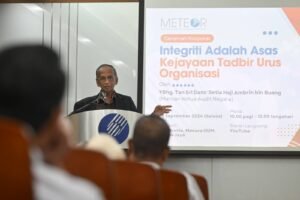The Loan and Interest Expense Dispute

In the heart of the financial district, a prominent company found itself embroiled in a tax controversy that shook its foundations. The company, known for its precision and strategy, had claimed interest expenses under Section 33(1) of the Income Tax Act 1967 (ITA). The loans in question were used to acquire shares in both local and foreign entities, a routine operation in the corporate world.
But the tax authorities weren’t convinced. Notices of Additional Assessment were issued for the Years of Assessment (YAs) 2008 to 2010, claiming the company had overstepped. The crux of the issue? The dividends associated with these shares were exempt from tax, disqualifying the related interest expenses as deductions.
The tax authority’s accusation wasn’t just about compliance—it carried a sting. “Negligence,” they called it, slapping penalties under Section 113(2) ITA on top of the additional assessments.
The Challenge

The company’s legal team was quick to respond. They had filed returns on time, sought professional tax advice, and fully cooperated during audits. How could negligence be alleged when every step had been meticulously planned?
The company’s case leaned on precedent, citing rulings like Multi-Purpose Credit Sdn. Bhd. and Kompleks Tanjong Malim. “The law doesn’t prohibit deducting interest expenses from exempt income if such income is part of the company’s operations,” their counsel argued.
But the tax authority struck back. “Interest linked to exempt income is not deductible. Dividends fall under Paragraph 28 of Schedule 6, and your claim violates that rule. The so-called prudence in your process is irrelevant—it’s about the law,” their representative countered.
The Courtroom Battle

The hearing was intense. The company’s legal team presented a detailed defense, emphasizing their reliance on professional advice and citing examples of consistent practices in similar cases.
The tax authority’s counsel, however, held firm. “Exempt income does not justify these deductions. This isn’t about interpretation—it’s about clear statutory limits. Granting these claims would create a dangerous precedent,” they warned.
Judges pressed both sides, examining whether the company’s actions truly amounted to negligence or if the tax authority’s assessments were overly rigid. The tension in the room was palpable.
The Verdict

On 12 August 2024, the High Court delivered its decision. The company’s appeal was allowed, and the assessments and penalties were overturned.
“The taxpayer acted reasonably in relying on professional advice and provided adequate documentation. The tax authority has not demonstrated negligence under Section 113(2),” the judgment stated. For the company, the ruling was a victory not just for its finances but for its reputation.
The Lesson Learned
This case underscores a critical truth in taxation: proper preparation and adherence to procedures can prevail, even in contentious disputes.
For businesses:
- Meticulous Documentation Matters: Ensure all decisions and claims are backed by clear, thorough records.
- Engage Trusted Experts: Professional advice is invaluable but must be aligned with statutory provisions.
- Challenge Unjust Penalties: Mechanical imposition of penalties without cause can be overturned when challenged effectively.
This case serves as a reminder that even in the face of formidable challenges, clarity, and confidence can pave the way to victory.






